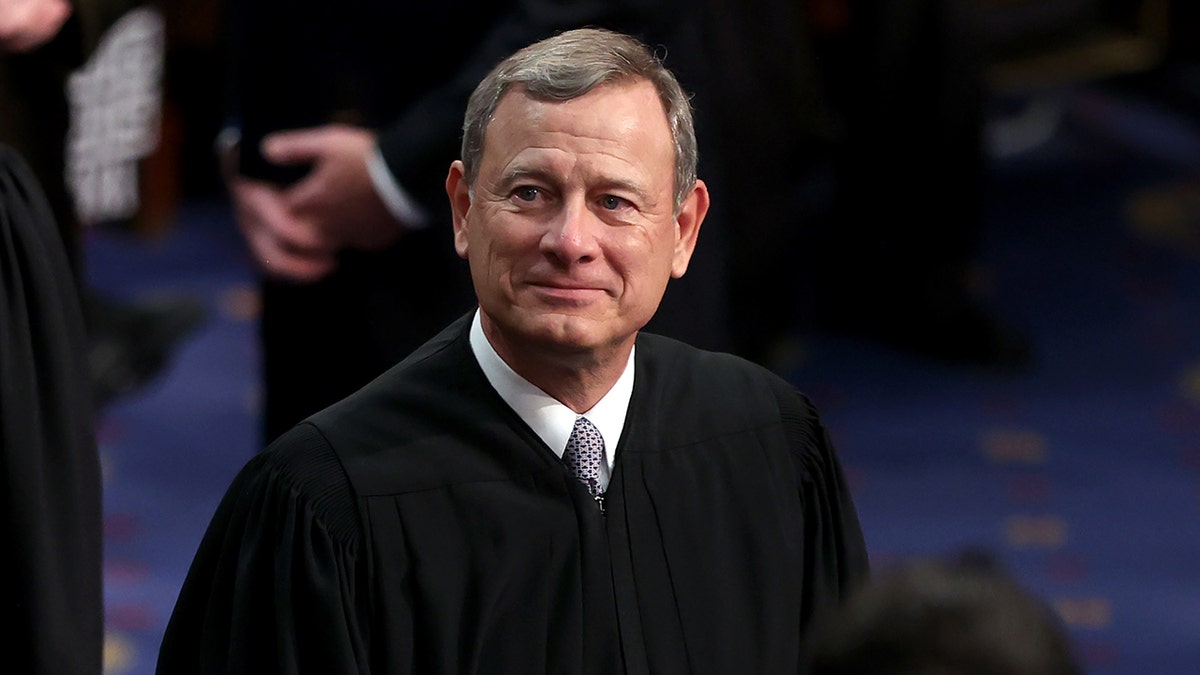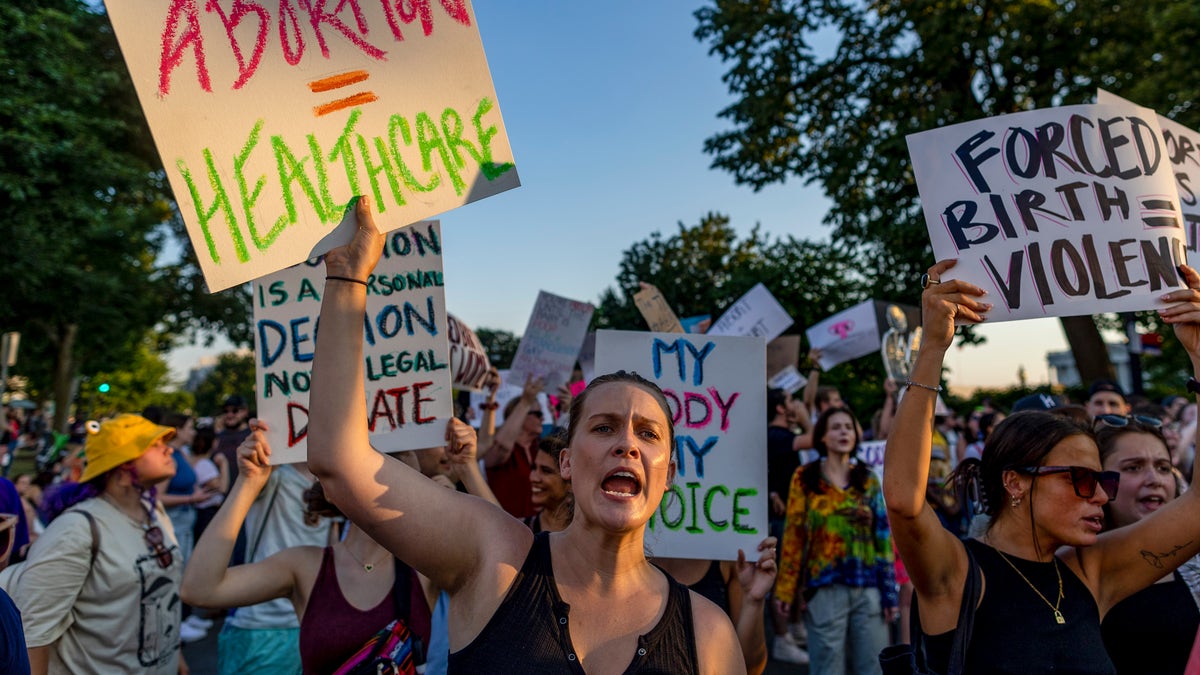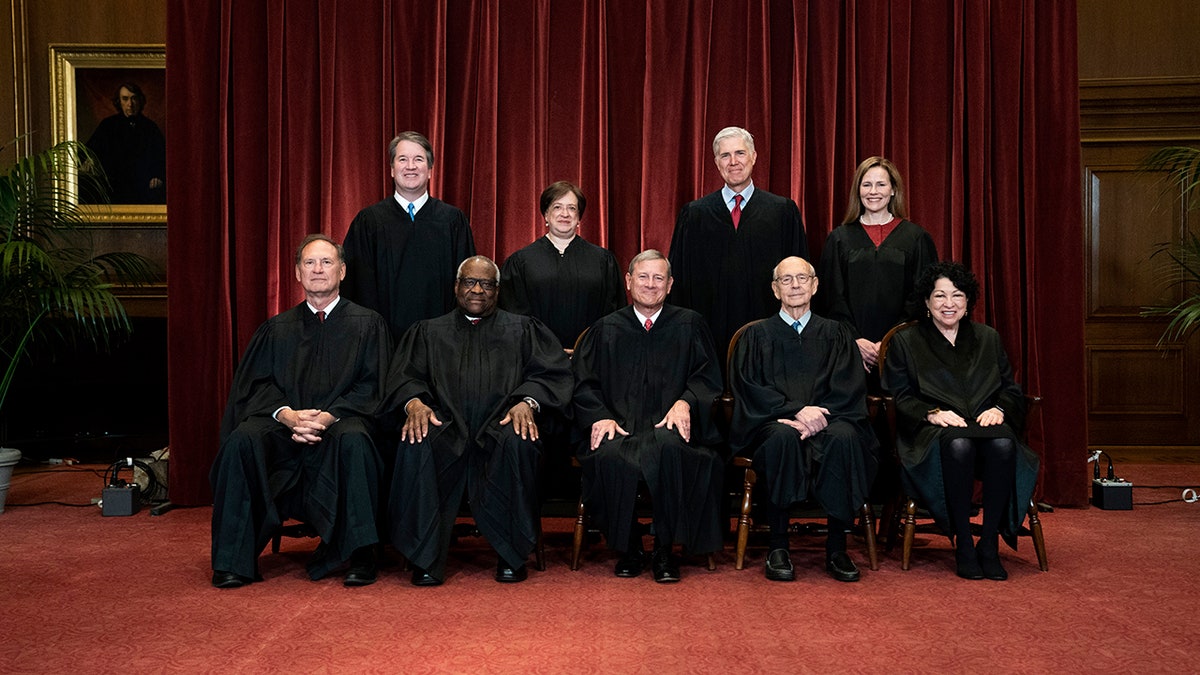Supreme Court overturning Roe v Wade sets off wave of legal action
Fox News correspondent Gillian Turner reveals how many states could enact total abortion bans in the coming months on 'Special Report.'
Chief Justice John Roberts defended the legitimacy of the Supreme Court on Friday and said that it pained him to see the public prevented from going near the court, which he says will soon change.
"It was gut-wrenching every morning to drive into a Supreme Court with barricades around it," Roberts said at the 10th Circuit Bench and Bar Conference in Colorado Spring, Colorado on Friday.
Roberts described the last year as an unusual and difficult one, pointing to the public not be allowed inside the court, closed in 2020 because of the pandemic and fenced off in May when protests erupted outside the court and outside the homes of some Supreme Court justices after the unprecedented leak of a document hinting the court was set to overturn Roe v. Wade.
The barriers have come down around the Supreme Court and Roberts says the public will be welcomed back when the new session begins in October.
KAMALA HARRIS BLASTS 'ACTIVIST' SUPREME COURT AFTER DOBBS DECISION

Supreme Court Chief Justice John Roberts is seen prior to President Biden giving his State of the Union address during a joint session of Congress at the U.S. Capitol on March 1, 2022 in Washington. (Julia Nikhinson-Pool/Getty Images)
Roberts did not provide an update on the investigation he launched earlier this year into the identity of the individual who leaked the draft of the opinion that caused the firestorm in the abortion debate but Supreme Court Justice Neil Gorsuch said at the same conference he expects a resolution soon.
"The chief justice appointed an internal committee to oversee the investigation," Gorsuch said. "That committee has been busy, and we’re looking forward to their report, I hope, soon."
MSNBC’S LAWRENCE O’DONNELL ADVOCATES EXPANDING SUPREME COURT TO ‘DILUTE THE TRUMP POISON’

Protesters gather in the wake of the decision overturning Roe v. Wade outside the U.S. Supreme Court on June 25, 2022 in Washington, DC. (Photo by Tasos Katopodis/Getty Images)
Gorsuch added that it is "terribly important" to identify the leaker.
"Improper efforts to influence judicial decision-making, from whatever side, from whomever, are a threat to the judicial decision-making process," Gorsuch said.
UC BERKELEY LAW DEAN SLAMS ‘SCOURGE’ OF ‘ORIGINALIST’ READING OF CONSTITUTION IN LA TIMES OP-ED
Without mentioning the controversial decision to overturn Roe v. Wade, Roberts expressed dismay toward those who have questioned the legitimacy of the court in response to decisions they may not agree with.

Supreme Court Justices of the United States (AP)
"If the court doesn’t retain its legitimate function of interpreting the constitution, I’m not sure who would take up that mantle," Roberts said. "You don’t want the political branches telling you what the law is, and you don’t want public opinion to be the guide about what the appropriate decision is."
CLICK HERE TO GET THE FOX NEWS APP
Associated Press contributed to this report





